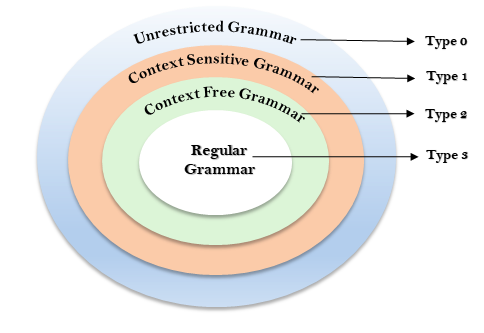- Teacher: Dr. N. VIJAYKUMAR basar
- Teacher: Dr. S. Shravan Kumar basar
- Teacher: LAKUMA DEVI I
Formal Languages and Automata Theory is a branch of computer science and mathematics that deals with the mathematical abstraction model of computation and its relation to Formal Languages.It becomes increasingly important to revisit theoretical foundations, learn the appropriate techniques for answering theory based questions,and build one's confidence in implementing this knowledge when building computer applications.
Course Objectives:
1. Develop a formal notation for strings, languages and machines.
2. Design finite automata to accept a set of strings of a language.
3. Prove that a given language is regular and apply the closure properties of languages.
4. Design context free grammars to generate strings from a context free language and convert them into normal forms.
5. Prove equivalence of languages accepted by Push Down Automata and languages generated by context free grammars.
6. Identify the hierarchy of formal languages, grammars and machines.
Distinguish between computability and non-computability and Decidability and undecidabilityCourse Outcomes:
1. Write a formal notation for strings, languages and machines.
2. Design finite automata to accept a set of strings of a language.
3. For a given language determine whether the given language is regular or not.
4. Design context free grammars to generate strings of context free language.
5. Determine equivalence of languages accepted by Push down Automata and languages generated by context free grammars.
6. Write the hierarchy of formal languages, grammars and machines.
Distinguish between computability and non-computability and Decidability and undecidability
- Teacher: Mrs. KOPPULA GEETA basar
Iam happy to announce that the Course will start from September 1st 2020
Let me give you a glance about our Course Object Oriented Programming concepts implemented using JAVA
COURSE OBJECTIVE:
Covers software design, implementation, and testing using Java. Introduces object-oriented design techniques and problem solving. Emphasizes development of secure, well-designed software projects that solve practical real-world problems.
To understand Object oriented programming concepts, and apply them in Problem solving.
To learn the basics of Java Console and GUI based programming
COURSE OUTCOMES:
On completion of the course the student should be able to:
· Use an integrated development environment to write, compile, run, and test simple object-oriented Java programs.
· Read and make elementary modifications to Java programs that solve real-world problems.
· Validate input in a Java program.
· Identify and fix defects and common security issues in code.
· Document a Java program using Javadoc.
· Use a version control system to track source code in a project.
PREREQUISITES:
Need to have good logical and analytical skills, problem-solving skills
This course requires that the students are familiar with programming language such as C/C++ and data structures, algorithms.
“Write Once and Run Anywhere”
TAKING YOU FROM GOOD TO GREAT - PROGRAMMERS A HEAD
Artificial intelligence is inculcating human intelligence into a machine. The fundamental techniques involved in making it is put forth in the course. It requires basic notion of graph theory, mathematical logic, data structures (trees and graph traversals). The student is expected to understand and have hands on experience on how the basic techniques of artificial intelligence works on a computing machine.

- Teacher: VENKAT RAMAN B basar